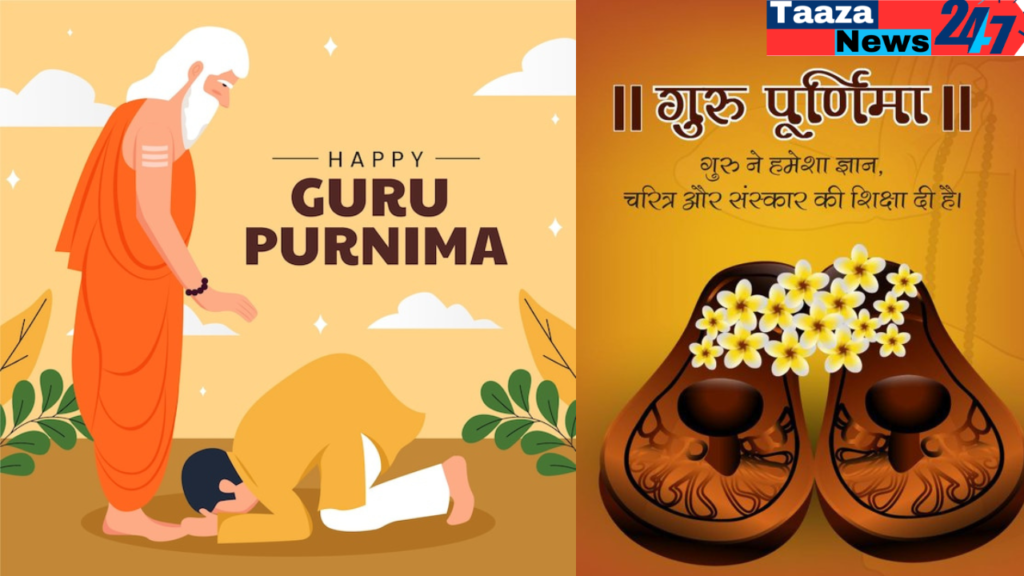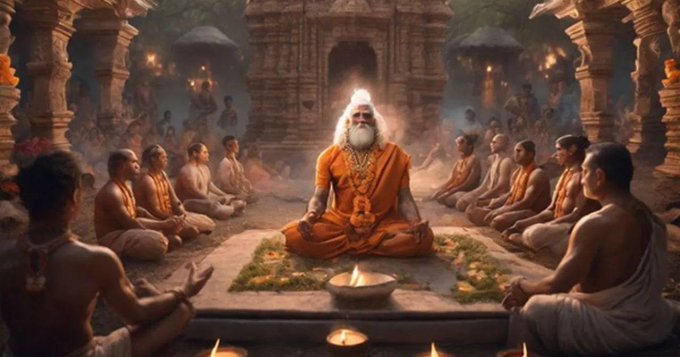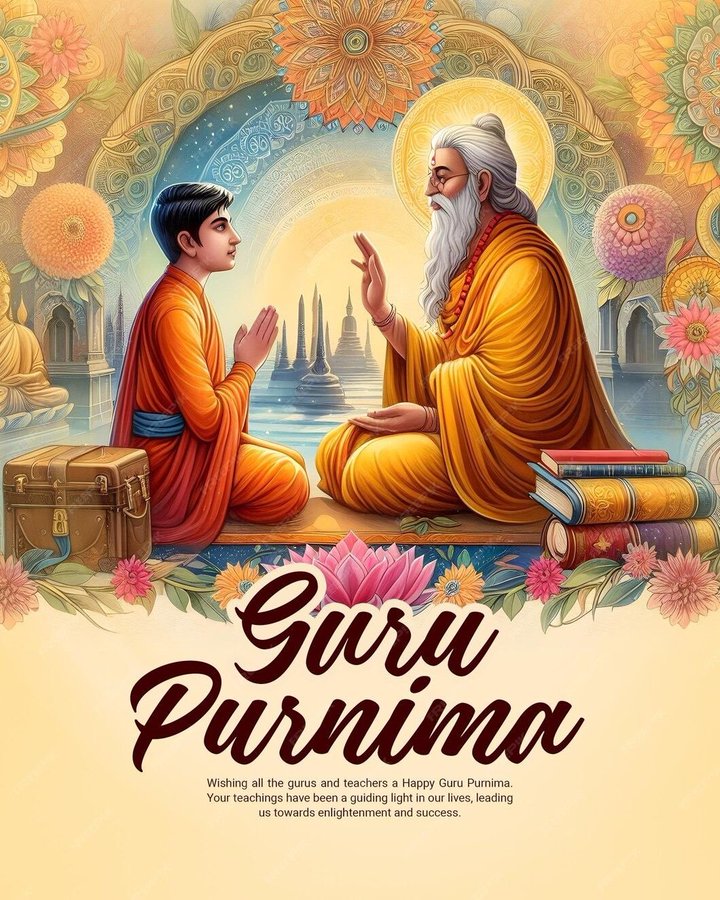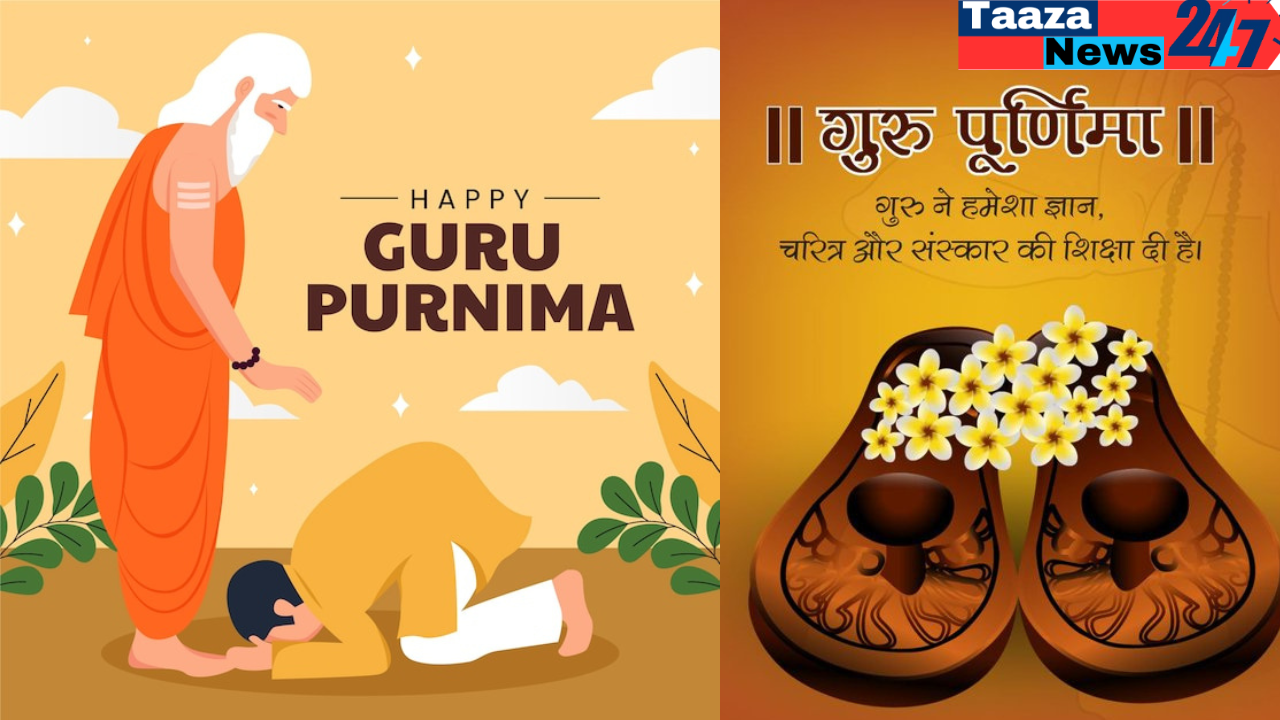
Introduction
Guru Purnima, celebrated on the full moon day (Purnima) in the Hindu month of Ashadha (June-July), is a significant festival dedicated to honoring spiritual and academic teachers, known as gurus. This year, Guru Purnima falls on July 21, 2024. The word “guru” is derived from the Sanskrit words “gu,” meaning darkness, and “ru,” meaning remover. Thus, a guru is someone who dispels the darkness of ignorance and leads their disciples towards enlightenment
Historical Significance
The festival has deep roots in Hinduism, Buddhism, and Jainism. It commemorates the birth of Veda Vyasa, the sage who authored the Mahabharata and compiled the Vedas. Veda Vyasa is considered one of the greatest gurus in Hindu tradition, and his contributions to Indian literature and philosophy are immense. In the yogic tradition, Guru Purnima marks the day when Shiva, the Adiyogi, became the first guru by transmitting the knowledge of yoga to the Saptarishis (the seven sages). This event is seen as the beginning of the guru-shishya (teacher-disciple) tradition, which is central to Indian spiritual practices
In Buddhism, Guru Purnima is celebrated to honor Gautama Buddha, who gave his first sermon at Sarnath on this day. This sermon, known as the Dhammacakkappavattana Sutta, set in motion the Wheel of Dharma and laid the foundation for the spread of Buddhism

Cultural Observances
On this day, disciples express their gratitude towards their gurus through various rituals and ceremonies. These may include:
Guru Puja: A ritualistic worship of the guru, where disciples offer flowers, fruits, and other items as a mark of respect. The guru is often seated on a special seat, and the disciples perform aarti (a ritual of worship with light) and chant hymns in praise of the guru.
Prayers and Offerings: Devotees offer flowers, fruits, and other items as a mark of respect. In many ashrams and spiritual centers, special prayers and meditation sessions are held to honor the guru.
Spiritual Discourses: Many gurus give special teachings and discourses on this day. These discourses often focus on the importance of the guru in one’s spiritual journey and the need for humility and devotion in the disciple.
Community Service: Some devotees engage in acts of charity and community service as a way of honoring their guru’s teachings. This can include distributing food to the needy, organizing medical camps, or participating in environmental conservation activitiesactivities

Modern Celebrations
In contemporary times, Guru Purnima is not only a religious observance but also a day to honor teachers and mentors in various fields. Schools and educational institutions often hold special events to acknowledge the contributions of their teachers. Students may present their teachers with gifts, cards, and flowers as a token of appreciation. In the corporate world, employees may take this opportunity to thank their mentors and leaders who have guided them in their professional growth.
The festival also has a significant presence on social media, with people sharing messages of gratitude and appreciation for their gurus. Hashtags like #GuruPurnima and #ThankYouGuru trend on platforms like Twitter and Instagram, reflecting the widespread recognition of the importance of teachers and mentors in our lives.
Conclusion
Guru Purnima is a day of reflection and gratitude, celebrating the invaluable role of gurus in guiding us towards knowledge and enlightenment. Whether through spiritual teachings or academic mentorship, the wisdom imparted by gurus continues to illuminate our paths. As we honor our gurus on this auspicious day, let us also strive to embody the values they teach us and pass on their wisdom to future generations.
Happy Guru Purnima!🙏🏻 pic.twitter.com/UcZuG6d2ao
— RVCJ Media (@RVCJ_FB) July 20, 2024











